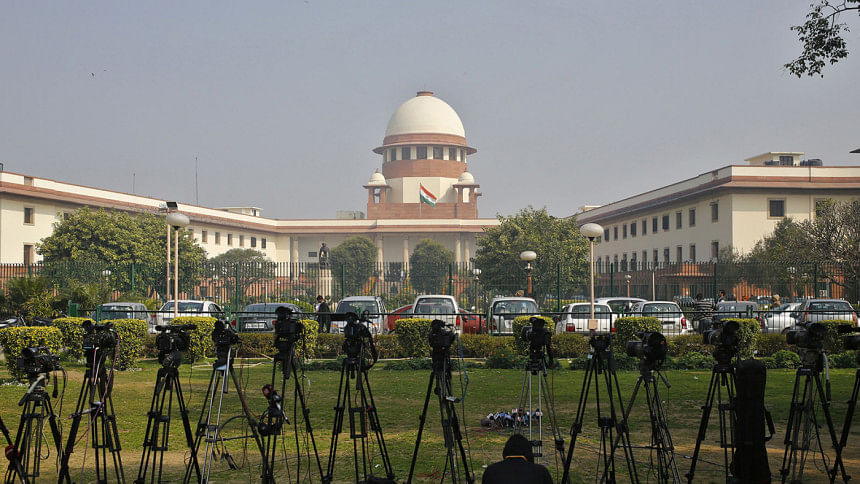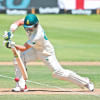Indian SC upholds repeal of Article 370, orders polls in Kashmir by September 2024

India's Supreme Court today upheld the validity of the abrogation of the Constitution's Article 370 that granted special status to Jammu and Kashmir, in a boost to the decision taken by Prime Minister Narendra Modi government's over four years ago.
The apex court also directed that the Election Commission take steps to conduct elections of Jammu and Kashmir legislative assembly by September 30, 2024, reports our New Delhi correspondent.
Delivering the judgement, a five-member Constitution bench of the top court headed by Chief Justice DY Chandrachud said, "We hold exercise of presidential power to issue constitutional order abrogating Article 370 of Constitution as valid."
The bench also directed restoration of statehood of Jammu and Kashmir, which has been a federally-run territory since abrogation of Article 370 in August, 2019, at the earliest.
Justice Chandrachud said Jammu and Kashmir became an integral part of India and this is evident from Articles 1 and 370 of the Constitution.
He said Article 370 did not freeze Jammu and Kashmir's integration with India.
"Jammu and Kashmir does not have internal sovereignty different from other states of the country," he said.
Chandrachud said Article 370 was an interim arrangement due to war conditions in the state and the Indian president's power to revoke it still exists.
He said the constituent assembly of Jammu and Kashmir was never intended to be a permanent body. "When the constituent assembly ceased to exist, the special condition for which Article 370 was introduced ceased to exist," he added.
The Supreme Court pronounced its verdict on a batch of petitions challenging the abrogation of the provisions of Article 370.
Headed by Chandrachud, the constitution bench comprised Justices Sanjay Kishan Kaul, Sanjiv Khanna, B R Gavai and Surya Kant.
The top court had reserved its verdict in the matter on September 5 after a 16-day hearing. The arguments on the issue had begun on August 2 this year.
During the hearing, the top court heard Attorney General R Venkataramani, Solicitor General Tushar Mehta, senior advocates Harish Salve, Rakesh Dwivedi, V Giri and others on behalf of the Indian government and the interveners defending the abrogation of Article 370.
Senior lawyers including Kapil Sibal, Gopal Subramanium, Rajeev Dhavan, Zaffar Shah and Dushyant Dave, had argued on behalf of the petitioners.
The lawyers had dwelt on various issues, including the constitutional validity of the Centre's decision to abrogate the provisions of Article 370, the validity of the Jammu and Kashmir Reorganisation Act, which split the erstwhile state into two separate federally-administered territories, challenges to the imposition of the governor's rule in Jammu and Kashmir on June 20, 2018 and the imposition of the president's (federal) rule on December 19, 2018 and its extension on July 3, 2019.
Ahead of the Supreme Court ruling, Indian authorities strengthened security arrangements in sensitive parts of Jammu and Kashmir, especially in summer capital Srinagar and adjoining areas.
Security forces have been deployed at many places in the Kashmir valley to maintain law and order and checkpoints set up in and around Srinagar city and random frisking and checking of vehicles and people are being done, the officials said.
Leaders of the People's Democratic Party (PDP) headed by former Jammu and Kashmir chief minister Mehbooba Mufti claimed to have been placed under house arrest, while certain restrictions were also placed on Gupkar Road housing the residence of prominent leaders including former chief minister Omar Abdullah.
Mehbooba's daughter Iltija Mufti said they have been placed under house arrest with a posse of policemen deployed at their Khimber residence on the outskirts of the city.
However, Jammu and Kashmir Lieutenant Governor Manoj Sinha said the news of house arrest or arrest of anyone ahead of the Supreme Court verdict was "totally baseless".

 For all latest news, follow The Daily Star's Google News channel.
For all latest news, follow The Daily Star's Google News channel. 









Comments